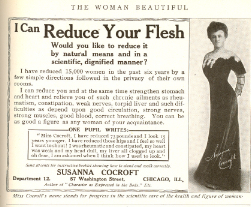Social Media’s Effect on Fashion and Teens
Low rise jeans, crop tops: these early 2000s trends are sneaking back into the mainstream and dragging unhealthy body expectations with it. The fashion cycle mixed with the current social consumption and idolization of celebrities is raising high school mental health and body image concerns.
According to Woodgrove Psychologist Mrs. Heidi Buckner, in recent years, there has been a noticeable increase in students who struggle with eating disorders. She feels like social media has done more harm than good in terms of teenage self esteem. “Editing software for phones where you can kind of make yourself look whatever way [you want] …is setting a standard that is not obtainable.”
Senior Laura Detweiller comments on the effects that the fashion industry and social media has had on her. “You’re constantly comparing yourself to popular Youtubers or people you see on TikTok.” Detweiler explains the difficulty in recreating unattainable celebrity images.

Though there has been some emphasis in creating body positivity within the media, a lot of it is being undermined due to recent trends, like the comeback of “heroine chic,” a term coined in the 90s that glamorizes the look of someone unhealthily thin. This trend affects both teen girls and boys. For example, when asked about the body image pressures that teen males face, Senior Spencer Wilson explains that due to social media a lot of guys go for a skinny and scrawny look that is “not always the healthiest to have.”
When asked about how we should start to incorporate men into the conversation about eating disorders, Ms. Buckner says, “It may be more prevalent in females, but it does exist in males as well. I think the messaging should be more inclusive.”
To involve men in the conversation Wilson suggests that we destigmatize the conversation around men and mental health. “No one says anything when men are rapidly losing/gaining weight.”
Ultimately, the root of the issue is celebrities and how the public perceives them. One example is Bella Hadid, a prominent super model who, according to Detwiler, “…has a major influence over the fashion industry because people look up to her and want to be her…” Hadid’s mother infamously pushed onto her to attain the “desirable” thin body. There are plenty of videos of Yolanda Hadid, her mother, encouraging Hadid to not eat even if she was moments away from passing out. This mixed with Tik Tok audios in which people compare themselves to Bella Hadid is part of the reason messages on body positivity are dwindling.
Your donation will support the student journalists of Woodgrove High School. Your contribution will allow us to purchase equipment, attend conferences, and cover our annual printing and website hosting costs.












